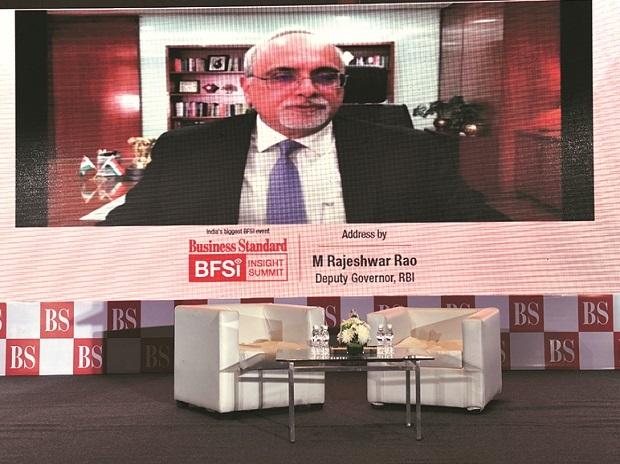[ad_1]
The pricing of the Centre’s sovereign green bonds can act as a benchmark for private sector players raising funds through rupee bonds for environmental, social and governance (ESG)-linked debt, Reserve Bank of India (RBI) Deputy Governor M Rajeshwar Rao said on Thursday while addressing the Business Standard BFSI Insight Summit.
Finance Minister Nirmala Sitharaman during her Budget speech for 2022-23 had announced that the government would issue green bonds as part of its market borrowing plan for the current financial year.
“The proceeds [raised by the government via green bonds] would be deployed in public-sector projects which will help reduce carbon-intensive [sectors] of the economy. This by no means is a small step,” Rao said at the event in Mumbai.
“Sovereign green bonds (SGBs) will also provide a pricing reference for private-sector entities in India for their rupee-denominated borrowing for ESG-linked debt,” he said, adding that the issuance of such instruments would help create an ecosystem that fostered a greater flow of capital into green projects.
Rao said the central bank had recognised the need for concerted efforts in this area and concomitantly set up a sustainable finance group within its department of regulation in May 2021 to lead the regulatory initiative with regard to climate risk and sustainable finance in the Indian context.
Last month, Sitharaman approved the final SGB framework, which would further strengthen India’s commitment to its Nationally Determined Contribution (NDC) targets, adopted under the Paris Agreement, and help attract global and domestic investments in eligible green projects.
Commenting that commercial banks and financial institutions should lead the way, Rao said it was “heartening to note” that leading banks had begun stepping up their exposure to the renewable energy sector in recent years.
“To support this acceleration, a number of structural changes may be needed in the traditional lending approach, including evaluation and certification of the green credentials of projects. In order to give focused attention to scaling up green finance, banks and financial institutions would have to invest in human resources and capacity-building efforts, as well as integrate environmental and social risk considerations into their corporate credit appraisal mechanisms,” he said.
One of the challenges for scaling up green finance is the availability of a robust ecosystem for third-party verification/assurance and impact assessment and the green credentials of businesses and projects. “This would also address potential greenwashing concerns and ensure unhindered flow of capital and funding to the entities,” he said.
“The challenge regarding the availability of data and disclosures would also need to be addressed quickly,” he said, adding that the disclosure standards prescribed by Sebi (Securities and Exchange Board of India) for the top 1,000 listed entities by market capitalisation were welcome.
He said the financial sector has a key role to play as it is the sector which finances business.
The deputy governor said there is a need for regulated entities to develop and implement comprehensive frameworks for understanding and assessing the potential impact of climate-related financial risks in their business strategy and operations.
He observed that the Indian economy is at a stage where there is a need to grow rapidly, but the challenge is to devise ways to incorporate climate risk and ESG-related considerations into commercial lending and investment decisions, and at the same time balance the needs of credit expansion, economic growth, and social development.
“Collective engagement would help build on our early progress and go a long way in addressing the challenges of climate change,” he added.
[ad_2]
Source link



